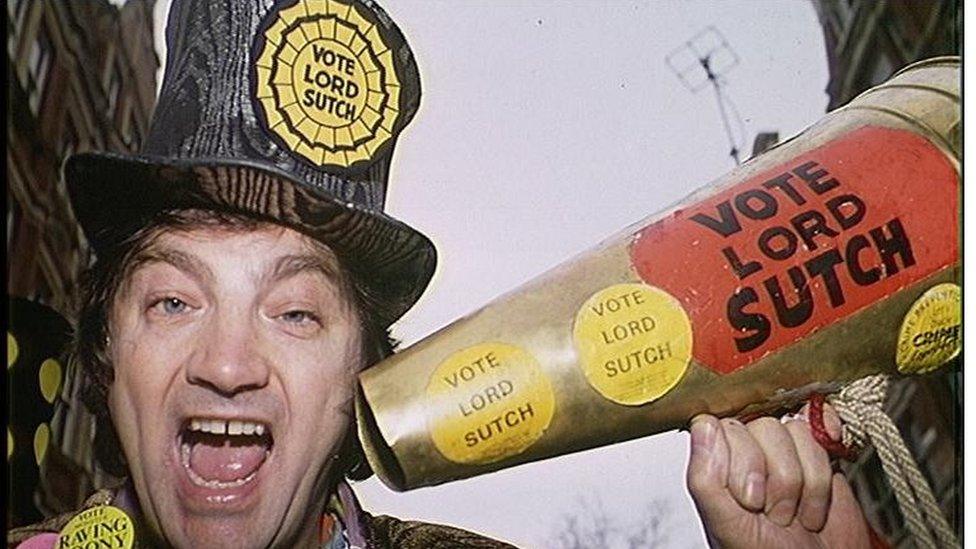The comic candidates taking on the election elite
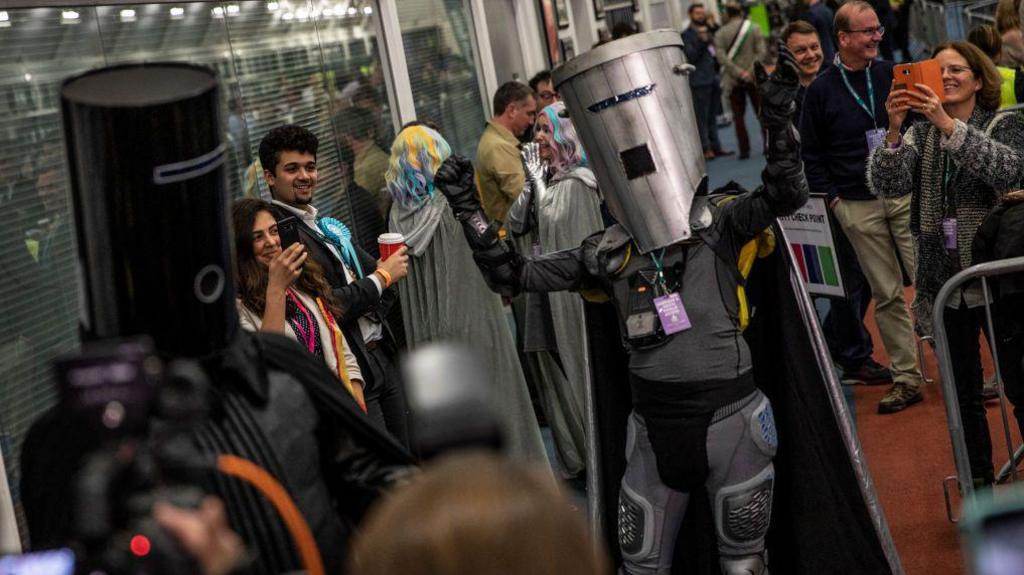
Lord Buckethead and Count Binface ran against Boris Johnson in Uxbridge and South Ruislip in the 2019 general election
- Published
From "intergalactic space warriors" to activists in Elmo suits, there is an established tradition of joke candidates standing in UK elections.
This year is no different, with Rishi Sunak set to share a stage with an array of characters on 5 July in his Richmond and Northallerton constituency.
A candidate from the Monster Raving Loony Party, Count Binface and a YouTube prankster have all entered the race.
But as well as offering some comedic relief, a political scientist from Leeds said there were serious messages behind some joke campaigns.
Andy Mycock, from the University of Leeds, told the BBC the history of joke candidates could be traced back to the 1970s.
"If you go back and look at why we see joke candidates emerging and why they have become more popular, it is because of that sense of distance between politics and the general public," he said.
"There is this deliberate attempt to satirise those political elites in power.
"I think also, there is serious comment behind it and often the joke candidate is trying to raise serious points about the system and how it might not be functioning very well.
"And at the same time, there is just that great big British tradition of wanting to take the Michael!"
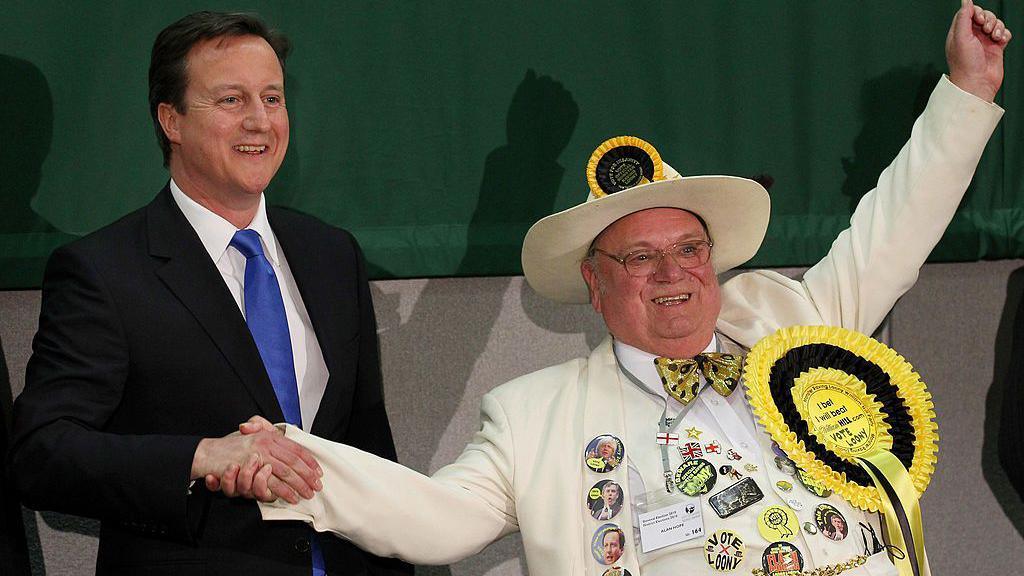
The Monster Raving Loony Party have been standing in UK elections for more than 40 years
Mr Mycock said such candidates tended to target high-profile seats, whether that be against prime ministers or party leaders.
Then on count day, it puts serious politicians next to characters in outlandish costumes, as voters have seen with Boris Johnson, Theresa May and Jeremy Corbyn.
But aside from silly costumes, the joke candidates have to put in time and effort to build their campaign.
"There is something quite powerful about having to go out and commit to campaigning," Mr Mycock said.
He used Count Binface's manifesto as an example, where seemingly prank policies such as "National Service for all ex-prime ministers" actually shone a light on the quality of policy making.
"Although there might be a satirical or humorous point, there is a deliberate comment here about the state of the country," Mr Mycock added.
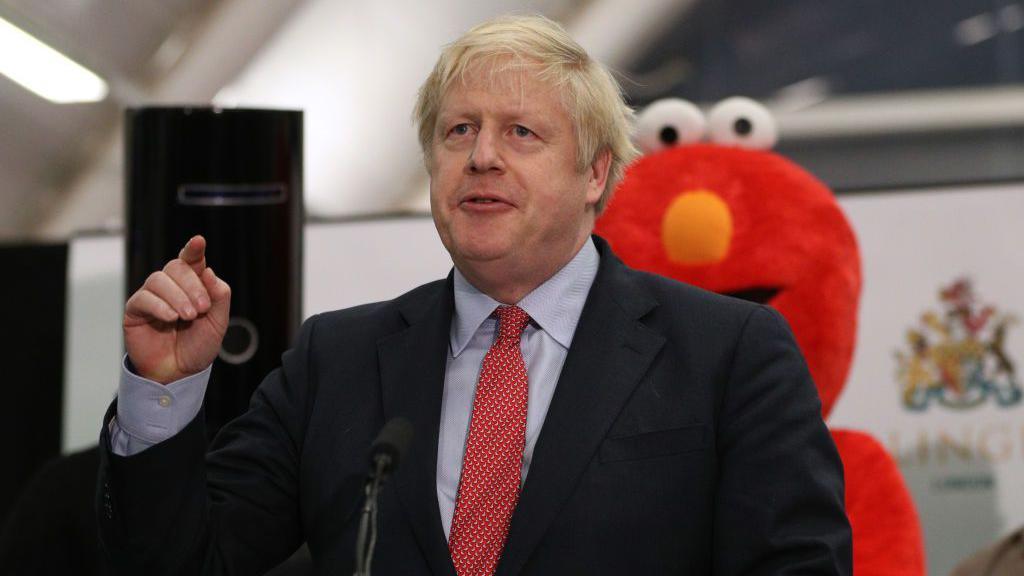
General election counts often feature top politicians standing next to candidates in outlandish costumes
The fresh style of campaigning could even reach people who would not usually vote, suggesting it could be good for democracy.
"There is evidence, particularly for young people, that once you get into the habit of voting, it becomes a lifelong habit," Mr Mycock said.
"It's not certain but if some young people vote for a different candidate this election, they could carry on voting in future elections."
However, on the other side, more than 114,000 spoiled ballots were returned in the 2021 London mayoral election, with evidence suggesting many voters were frustrated with the amount of candidates on the ballot paper.
"There is a fine line there, the danger is that it only stimulates interest in voting to make a point," Mr Mycock added.
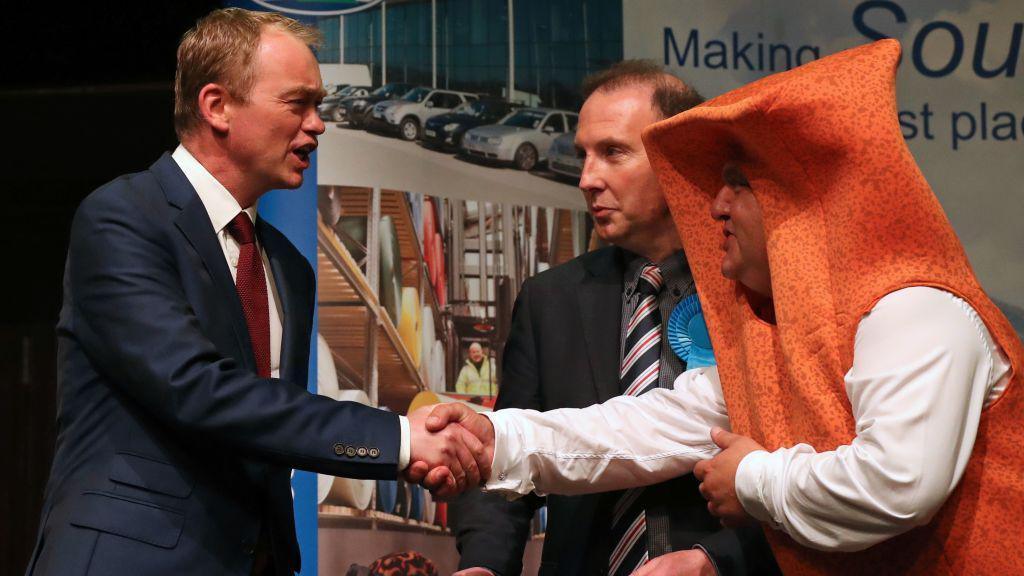
Joke candidates often pick up only a handful of votes and lose their £500 deposits
Most joke candidates profoundly fail, the political scientist said, perhaps most notably Catherine Taylor-Dawson, who stood for Vote For Yourself Rainbow Dream Ticket.
Standing in Cardiff's four constituencies, she won just a single vote in Cardiff North in the 2005 election.
With a £500 deposit scheme in place, only candidates who reach 5% of the vote get the sum returned.
This is in place to limit the number of comedy candidates - but some are undeterred by this and often go on to lose a lot more money with the cost of campaigning.
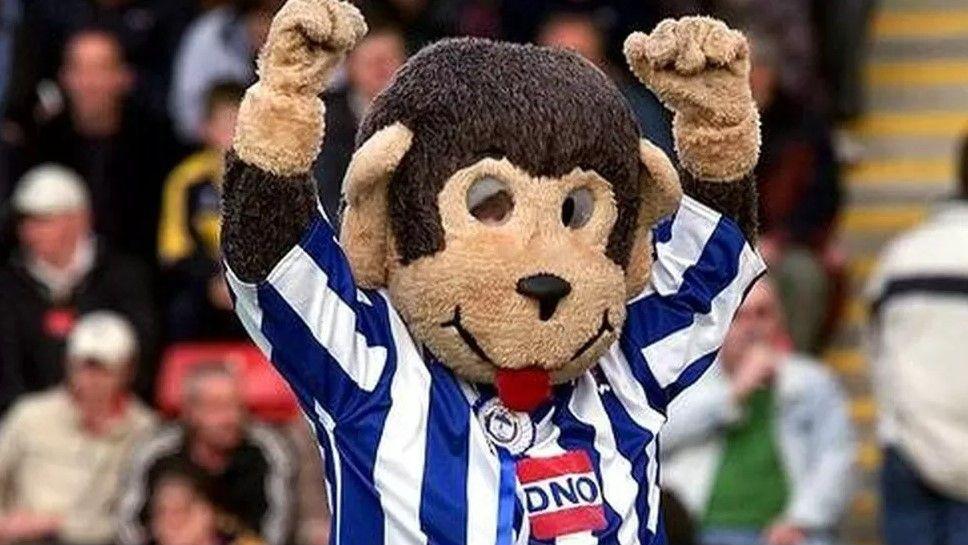
Voters in Hartlepool elected H'Angus the Monkey as mayor in 2002, and the character went on to serve three terms
However, not all joke candidates pick up only a handful of votes.
The most successful joke candidate managed to become the mayor of Hartlepool and served for three terms until the position of directly-elected mayor was abolished in 2013.
"H'Angus the Monkey- the mascot for Hartlepool FC- was elected in 2002 and yet the day after he won the election, he took his monkey suit off and governed as a serious mayor," Mr Mycock said.
"There is an investment in the joke candidate cause that goes beyond dressing up in a suit and trying to embarrass the prime minister."
Full list of candidates standing in Richmond and Northallerton
Jason Barnett- Independent
Count Binface- Count Binface Party
Daniel Callaghan- Liberal Democrat
Angie Campion- Independent
Louise Dickens- Workers Party of Britain
Kevin Foster- Green
Rio Goldhammer- The Yorkshire Party
Niko Omilana- Independent
Brian Richmond- Independent
Sir Archibald Stanton- Monster Raving Loony Party
Rishi Sunak- Conservative
Lee Taylor- Reform UK
Tom Wilson- Labour
Follow BBC Yorkshire on Facebook, external, X (formerly Twitter), external and Instagram, external. Send your story ideas to yorkslincs.news@bbc.co.uk, external
Related topics
- Published15 October 2021
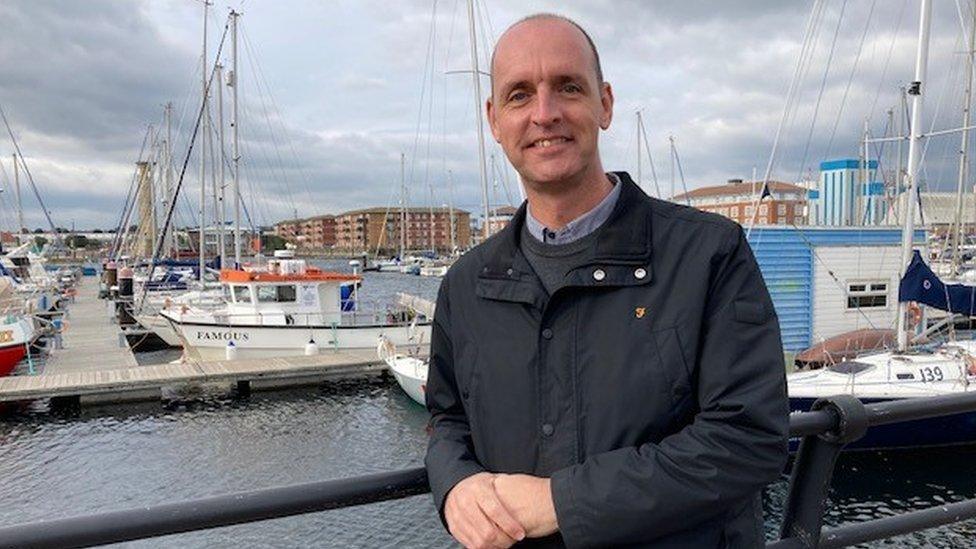
- Published12 June 2024

- Published24 February 2023
